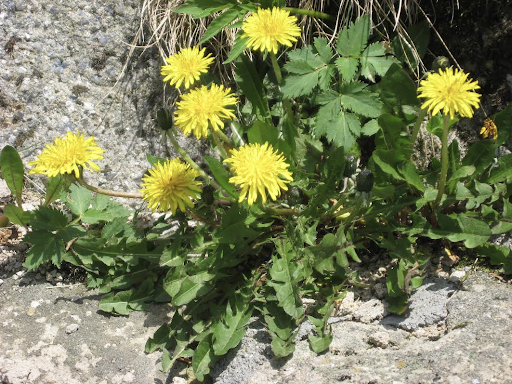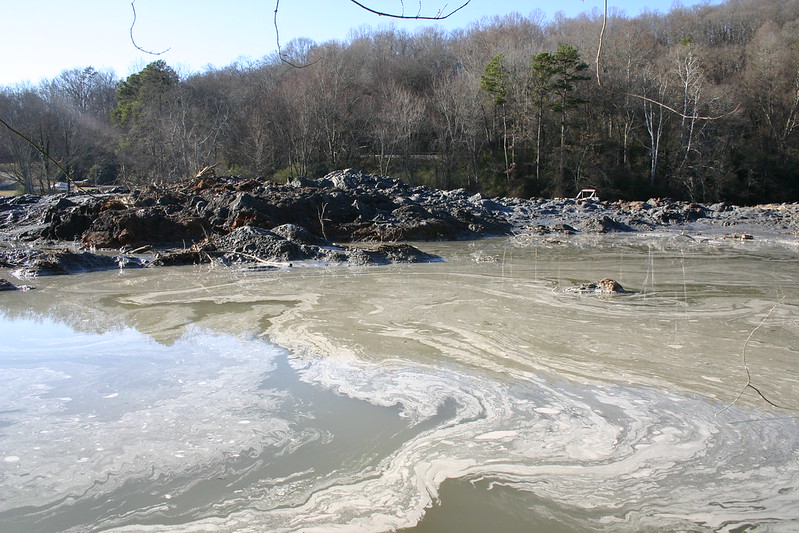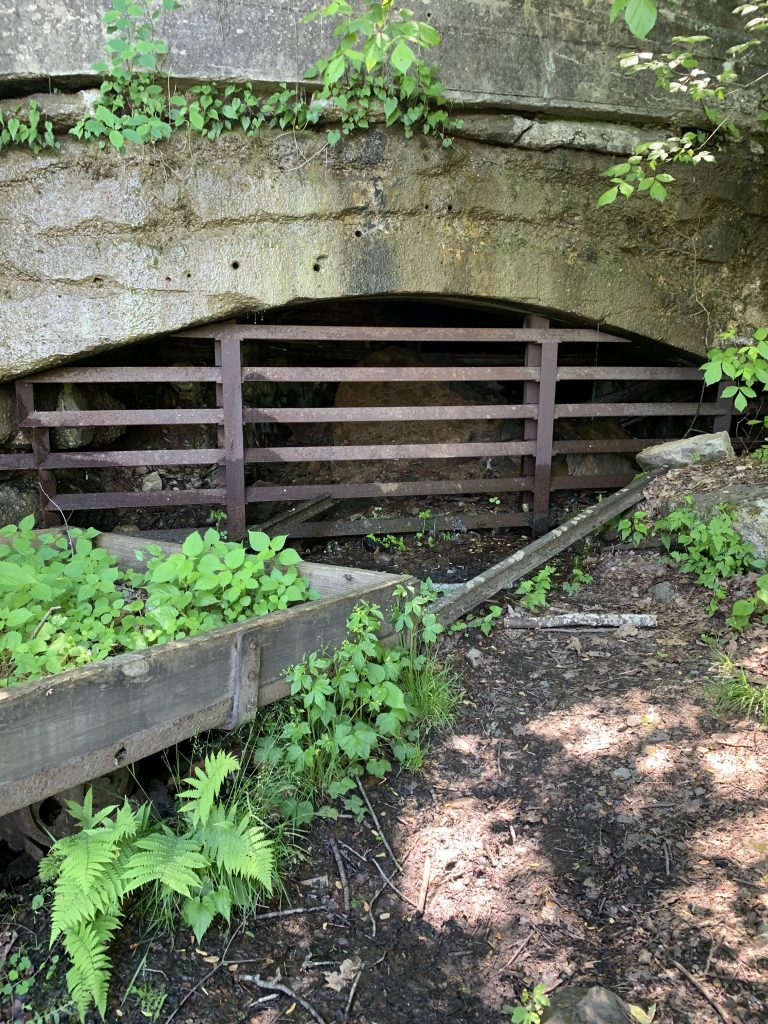Cleaning Up Coal Ash
For well over a century, power plants across the country have burned coal to generate electricity. And for just as long, leftover coal ash has been dumped in open, unlined pits near the power plant, usually located on a river or lake. Every year, U.S. power plants produce 130 million tons of coal ash, which is the second largest waste stream in the country after municipal garbage.
Coal ash concentrates the toxic heavy metals found in coal, including arsenic, mercury, lead and selenium. Stored in unlined, wet impoundments, coal ash has been leaking these toxics into our groundwater and surface waters for years. Sometimes these impoundments collapse — with disastrous results.
Yet government regulations for coal ash management are either non-existent or sparse, and there is little enforcement of the regulations that do exist. In North Carolina, this lack of oversight — and the complicity between state regulators, elected officials and Duke Energy — came to a boiling point in February 2014 when one of Duke’s coal ash impoundments spilled 39 million tons of ash into the Dan River.
Citizens living near North Carolina’s 33 coal ash impoundments — all of which have leaked — have fought for transparency from Duke and the state, and for cleanup of the pollution that threatens their property value, health and family. Their actions forced this issue into the headlines of news networks and to the forefront of environmental justice conversations in the United States.
Appalachian Voices stood with these communities as we worked for years to compel Duke Energy and the N.C. Department of Environmental Quality to excavate coal ash from all the North Carolina sites and dispose of it either in lined, dry landfills, away from waterways, or by recycling it for concrete or other uses, provided it’s done in a manner that protects public health and the environment.
On Jan. 2, 2020, North Carolina announced a historic settlement with one of the state’s most powerful corporations and polluters, Duke Energy. The settlement requires Duke to move nearly 80 million tons of toxic coal ash at six of its power plants to properly lined landfills onsite or recycle it.

Learn information about specific coal ash impoundments in the South, including health threats and safety ratings:
Additional Resources
Fact sheets, videos, links to academic research, and more
Sign Up to Act
Help us protect the health of our communities and waterways.
Latest News
Virginia state lawmakers call on U.S. Senate to pass climate reconciliation bill
Virginia legislators sent a letter to Sens. Kaine and Warner supporting a budget reconciliation package under negotiation that invests $555 billion in climate and clean energy.
Duke Energy’s Carbon Plan falls far short
Duke Energy would miss important deadlines for reducing carbon emissions and continue relying on polluting fuels if it’s inadequate Carbon Plan moves forward.
Lions and Trails and Foragers, Oh My!
Dandelions are complex, nutrient-rich plants with a distinct appearance that makes them ideal for novice foragers.
Wife of Kingston coal ash cleanup worker to be featured in event
Appalachian Voices and Just Transition Northwest Indiana will be co-hosting a virtual event on May 26 spotlighting the dangers of coal ash to our communities through testimony by the wife of a cleanup worker of the 2008 Kingston, Tennessee, coal ash disaster, the worst ever in U.S. history.
Advocates praise federal guidance for abandoned mine land funding
The federal government is getting ready to make a huge investment in cleaning up abandoned mine lands. The Department of Interior released guidance to help states and tribes to spend that money in ways that have the greatest impact for hard-hit communities.
Researchers Discuss How Climate Change Impacts Health in Rural Mountain Communities
Researchers discussed how climate change will impact health in rural mountain communities during a recent workshop. Spoiler alert: hotter nights, more mosquito- and tick-borne disease, and effects on mental and maternal health.











